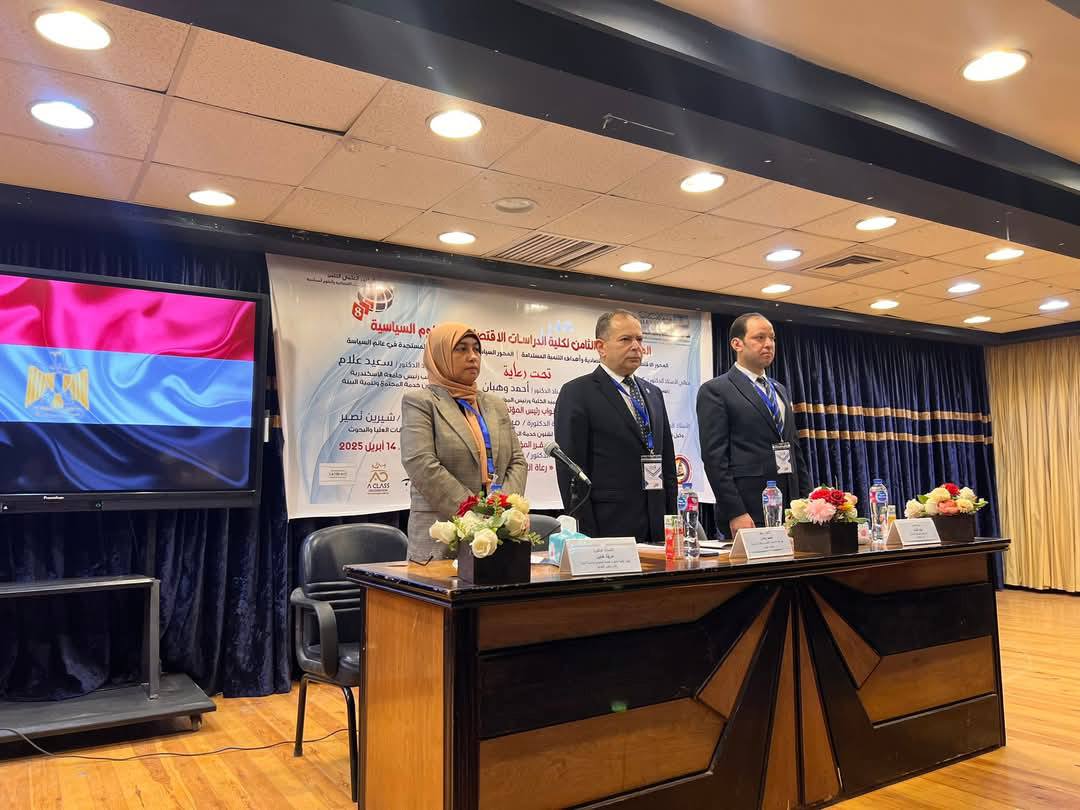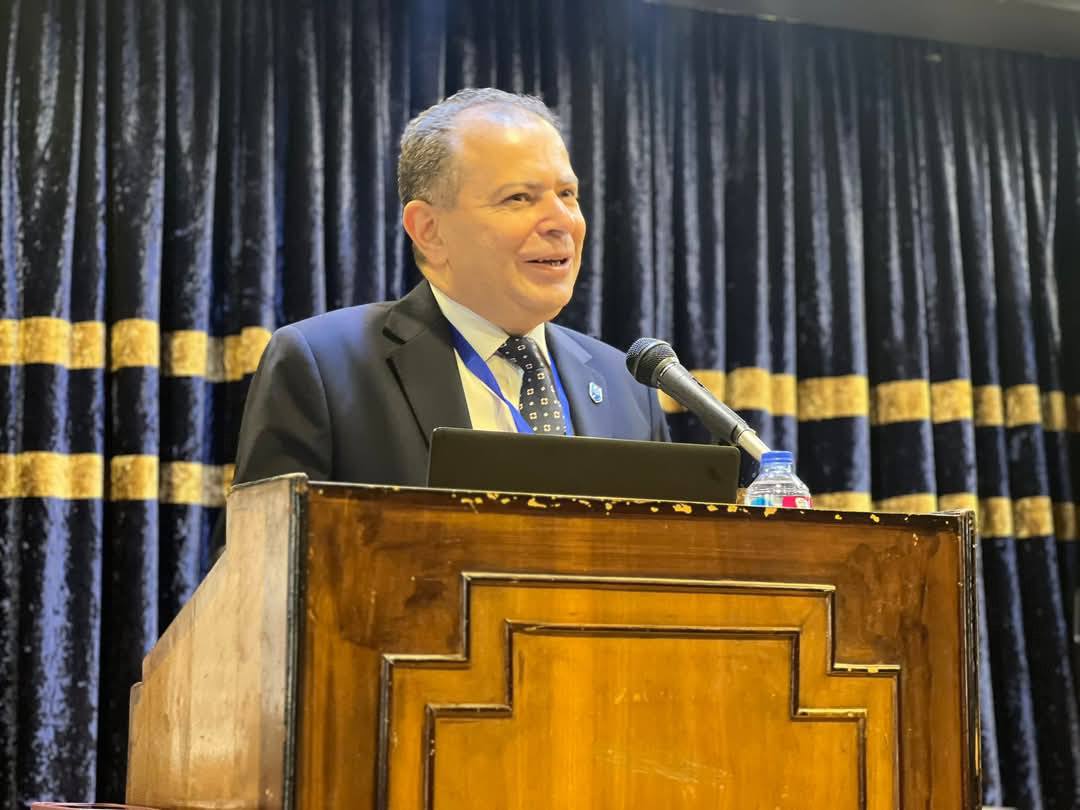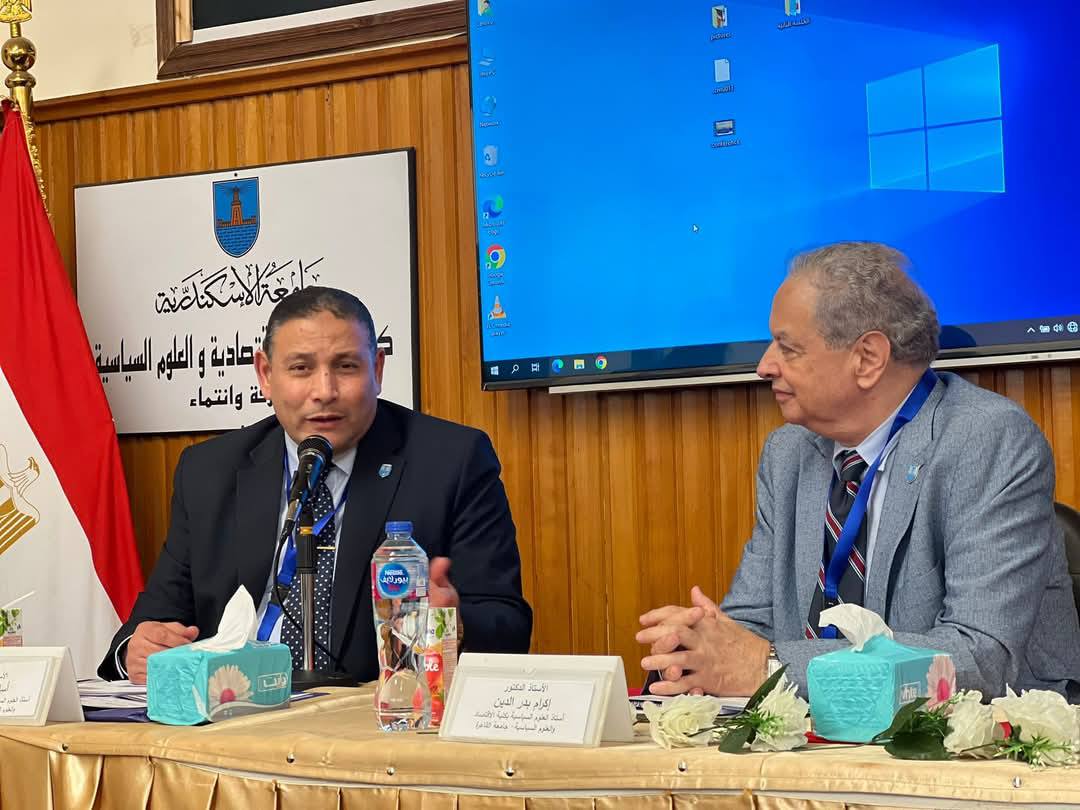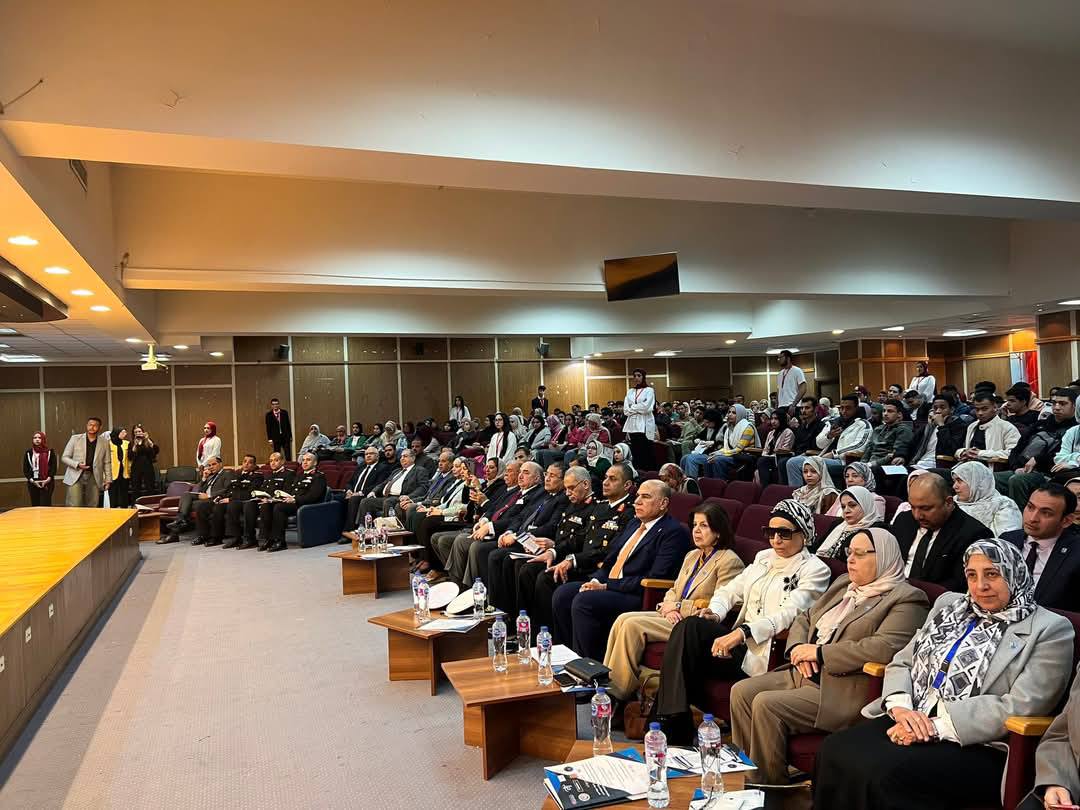
Under the auspices of Dr. Abdelaziz Konsowa, President of Alexandria University, Dr. Ahmed Wahban, Dean of the Faculty of Economics and Political Science, inaugurated the faculty's eighth scientific conference. The conference was attended by a group of deans of faculties and university leaders, the Director of the Naval College, the Rear Admiral of the Navy, the Director of the Institute of Naval Postgraduate Studies, naval commanders, a group of members of the Naval Salon, representatives of Al-Azhar, faculty members, representatives of several Alexandrian civil society organizations, and hundreds of researchers and students.

At the beginning of his speech, Dr. Ahmed Wahban conveyed the greetings of Dr. Abdelaziz Konsowa, President of Alexandria University, to the attendees, wishing everyone a fruitful, successful, and constructive conference. He explained that the current two-day conference includes an economic track titled "Economic Challenges and Sustainable Development Goals," and a political track titled "Analysis of Emerging Phenomena in the World of Politics." This underscores the faculty's commitment to addressing issues affecting the national economy, achieving sustainable development, Egyptian national security challenges, and Egyptian foreign policy concerns. He emphasized the need for conference researchers to present serious, effective, and applicable recommendations that can be effectively invested in serving the nation and its causes.
Dr. Walid Qassem, Assistant Professor of Political Science at the faculty and conference rapporteur, also emphasized the faculty's commitment to holding its academic conference periodically, a tradition that reflects its commitment to keeping abreast of and analyzing political and economic developments. He emphasized the importance of the conference producing recommendations for political and economic decision-makers, affirming the faculty's role as a house of expertise in the political and economic fields.
The conference sessions included two political and economic axes, during which many topics were addressed. The political axis research discussed the development of the role of international organizations in promoting the protection and respect of human rights at the national level, international legislation and its role in managing global political phenomena, the evolving role of international alliances: a case study of NATO, political research between qualitative and quantitative methods, the role of artificial intelligence in reshaping the international system, democratic decline in the world: a case study of democratic decline in India, a study of the causes and manifestations of democratic decline in Europe, the development of diplomatic patterns in light of the global challenges of the twenty-first century, the impact of populism on democratic systems, and an analysis of the concept of populism between the North and the South. The economic axis included five research papers that addressed several topics related to explaining inflation in Egypt (2020-2025), the impact of micro-projects on the poverty rate in Egypt, and activating the role of zakat in achieving sustainable development goals (2015-2030) (the case of Egypt), towards the integration of water and food security in Algeria: sustainable strategies. To address the challenges of resource scarcity and climate change, in light of changes in the relationship between the Egyptian trade balance and inflation according to the exchange rate hypothesis (2010-2023).



 English
English